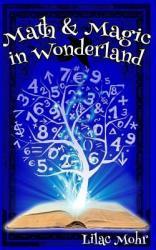
Do you like math & logic puzzles? If so, you can solve puzzles along with twins, Lulu and Elizabeth. They’re on a grand math adventure inspired by Lewis Carroll’s poetry. Do you have the ability to solve the puzzles and outwit the Bandersnatch? Check out this book and find out.
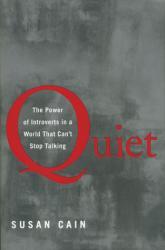
This book has me questioning whether or not I'm actually the straight-up extrovert I believed myself to be. Maybe it's a product of aging or of circumstances, but I find myself identifying with the introverts in some aspects of my life. My husband is a hard-core introvert, so this book reinforced what I already know about him. The anecdotes were very interesting and the presentation was more readable than your average nonfiction book. Good book!
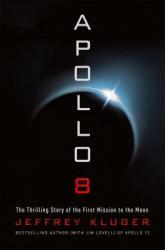
In August 1968, NASA made the bold decision to win a major battle in the Cold War by launching the first manned flight to the moon. President Kennedy's deadline of putting a man on the moon by 1970 was fast approaching, but Frank Borman, Jim Lovell, and Bill Anders were up to the challenge to make a huge advancement in order to meat the deadline. Apollo 8 tells the full story of the mission from Mission Control to the astronauts' homes, from the test labs to the launch pad. Apollo 8 also gives a summary of the Mercury, Gemini, and the other Apollo missions and talks about the science behind the mission in an easy to understand manner. From the coauthor of the bestselling book about Apollo 13, Apollo 8 is a thrilling yer informative tale and a great resource to have. I highly recommend this book for anyone in high school or older who is fascinated by the space program or is doing a project on anything related to NASA.
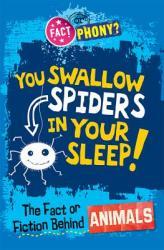
There are a lot of animal myths that have been passed down without knowing whether they are really true. This book looks at these myths to see if they are true. You’ll learn if earwigs crawl into people’s ear, if you can make two worms by cutting one in half, if touching a toad can give you warts, and so much more. Amaze your friends with your wealth of knowledge and actually learn something too!
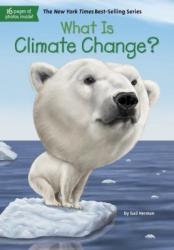
This book has tons of great information that can be helpful to children or adults who want to learn more about climate change. The author explains the subject matter with great detail, while still using language that is accessible and easy to understand. Concepts such as the environment, history, politics, and weather and how they all relate to one another are included using a diplomatic style. This is a great read for anyone who wants to learn more about what’s going on with our planet.
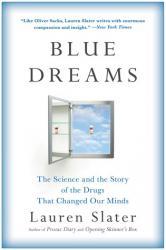
This book was okay. It takes the reader through the history of psychotrophic drugs. It's overall pretty dry. There are some parts that are very interesting, such as the author's struggles with psychotrophic drugs and the use of psychedelics in psychiatry, but overall I was pretty bored reading it. Maybe I'm not the target audience. Maybe it's geared more toward the academic set. But I did learn some, so I give it 3 stars.
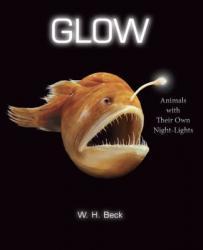
Bioluminescence, the ability to glow, is an adaptation that some animals have. They are animals that make their own light. You may be familiar with fireflies that glow in the air. Other animals glow on land and many others in the water. Learn about some different animals that glow and how and why they do it.
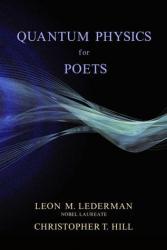
Quantum Physics for Poets explains some of the most arcane quantum physics topics to readers in a form which captures imaginations and aids understanding. Mr. Lederman and Mr. Hill have managed to write a book that spans simpler topics to far more complicated topics that most will never encounter, with a poetic theme to it that speaks to readers’ artistic souls. The blending of right brain and left is exceptionally done, managing to combine a love of understanding the world around us and a love of the singularly beatific rhythm that poetry provides in one’s life. An excellent book and an enthralling albeit challenging read, I would recommend this book to anyone with a high level of interest in the sciences, particularly physics, and a large interest in exploring its greater depths.
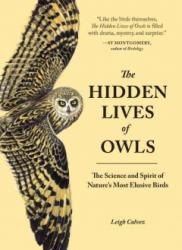
The Hidden Lives of Owls is a gripping nonfiction book that not only builds one’s knowledge of the species, but actively forges a bond between readers and the unique creatures. The book chronicles Mr. Calvez’s journeys through nature’s forests as he observes the innermost habits of owls. Mainly, Mr.
Calvez observes the owls at night, giving way to the book’s title of “Hidden Lives”, as he observes things one would not usually see in the daytime. Through its first-person narration by Mr. Calvez, a naturalist, the Hidden Lives of Owls reveals many aspects of the life of the owl about which one would never before be aware. I would recommend this book to anyone interested in the mysterious creatures that are owls, and interested in searching out further facts about these beautiful, wonderful, animals than is seen on the surface.
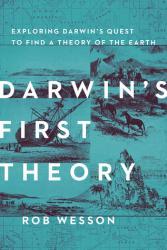
Everyone knows the name Darwin. The name is synonymous with one of the most important theories ever generated by mankind. At this point in the world, the name is less a name and more a representation of something much greater. Yet, as Mr. Welson leads us to question in his book Darwin’s First Theory, how deeply do we truly know the man who changed the face of our understanding of earth forever?
Written by leading geologist Rob Welson, Darwin's first theory explores the beginning of Charles Darwin’s quest to find a theory of the earth, and explores how his early theories helped shape his future and most famous theory of evolution. By bringing us along through well-researched narration of Mr. Darwin’s first journey on the HMS Beagle, Mr. Welson brings us to a greater understanding of the man whose theory shaped modern biology around the world. Darwin’s First Theory is an informative read. To anyone interested in Darwin, and interested in a greater understanding of biology's most influential theory, I would recommend this book.
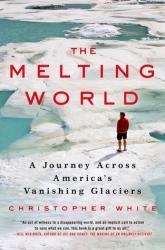
The Melting World, a tale of the author’s journey to Montana and beyond in order to better understand global climate change, is a powerful commentary on the state of global warming in our world today. Mr. White’s research is as fascinating as it is frightening, gripping us and emboldening readers to continue the changes in the world such that these caps cannot continue to atrophy at the rate they are. Since Mr. White traveled to Montana, and did research regarding the Rocky Mountain Ice, the Melting World hits close to home for Coloradoan readers. The book is neither overly long nor overly short, so one is left with a satisfied feeling of comprehension of the situation without being bombarded by information overload. Naturally, the Melting World is not a light book, and can be an upsetting one, but a book which is important to read nevertheless. To anyone who cares about the environment, I would recommend this gripping read.
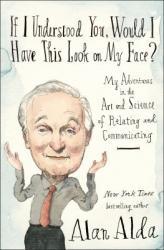
***THIS BOOK WAS RECEIVED FROM A GOODREADS GIVEAWAY***
While miscommunication might be the source of conflict for romantic comedies, it’s a much more significant problem in the real world. If people aren’t able to efficiently and accurately communicate with their fellow man, then we all have room for improvement. Scientists and doctors are often the worst offenders, even though their ideas need to be communicated to the world for the advancement of society. Alan Alda has spent years trying to figure out why people are unable to communicate, and he has also figured out what we can do to improve this situation. As a scientist and writer, I feel many of his insights have merit.
I grew up watching Alan Alda on Scientific American Frontiers, so I know how often he has interacted with scientists. His conclusions that we can all become better communicators through empathy and understanding of our audience makes sense. I dabbled in improvisational theatre a little in college as I was studying to earn my Masters in Mechanical Engineering. Having first-hand experience of successfully improvising, I always touted its benefits for technical professions. Now I know why. When we synchronize with others, our message has a much better chance of being communicated.
As if to prove his point, this book is not necessarily a scientific account of the research, but merely a personal (and relatable) set of anecdotal stories that should open people’s eyes to the potential communicators trapped within each of us. We all have to communicate on some level, whether it’s orally or written, so if we can all improve our communication skills by learning to empathize with others, maybe society could one day be able to hold civil and vigorous debates without instantly devolving into mud-slinging contests.
A must-read for anyone who communicates (i.e., everyone), I give If I Understood You, Would I Have This Look on My Face? 5.0 stars out of 5.
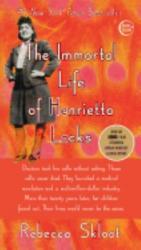
The Immortal Life of Henrietta Lacks by Rebecca Skloot is a powerful narrative detailing one of the most revolutionary scientific and medical discoveries of the 20th century: HeLa cells. Henrietta Lacks was diagnosed with cervical cancer in 1951 when she was 31 years old. During a surgery to remove some of her tumor, one of her surgeons took a sample of that tumor for testing in his lab. As he had tested many other cancerous cells, he expected Henrietta's cells to die within a few hours. They never did. Her cells continued to reproduce, and still do to this day. Henrietta's family, however, was never notified that her cells were taken. They discovered this in a news article years after the fact. The book not only tells Henrietta's story, but her family's as well. Rebecca Skloot worked for years with the Lacks family to ensure that justice was done, and Henrietta was not lost to history. I enjoyed the personal perspective that Skloot used to tell the story. It had the full potential of being written like a scientific journal, but Skloot told it as a beautiful narrative. Henrietta, her husband and children, and even Rebecca herself were characters and there was emotion on every page. It reads like a novel. I would recommend this book to anyone interested in medicine and its history.
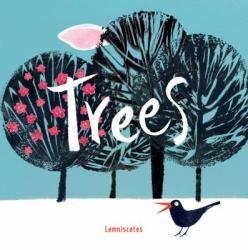
The best time to plant a tree is 20 years ago. The next best time is today. -Chinese Proverb
This is a lovely book that quietly conveys what trees are, how they live, and what they do. The illustrations beautifully magnify the simple text in what I would call biblioharmony. Snuggle up with your little one and check out Trees by Lemnisactes.
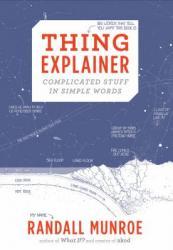
Growing up in the 1990’s, one of the defining books that helped me understand the world around me was David Macaulay’s The Way Things Work. Using “cartoonish” drawings of plenty of everyday (and not so everyday) machines, I gained plenty of useful knowledge that probably led me to eventually earn my Master’s Degree in Mechanical Engineering in 2009. While Macaulay’s illustrations were straight forward enough that they didn’t need explanations, some concepts around today certainly need some words to help gain an understanding of the way things work.
Enter Randall Munroe, famed “xkcd” webcomic author and an all around smart guy. In late 2012, he published a comic that described each of the systems in NASA’s Saturn V rocket with simple words. Described as “U.S. Space Team’s Up Goer Five,” the concept of using shorter, more common words to explain complicated concepts came to its full fruition in Thing Explainer. Using the thousand most common words, Munroe manages to humorously and thoroughly explain such “things” as the U.S. Constitution, The International Space Station, and the Large Hadron Collider (amongst many other common and complicated ideas).
While the concept is fun and this book could easily be used to help children understand these fascinating ideas, the thousand-word constraint is also its biggest weakness. Sure, I could deduce that “shafts” were usually “sticks” (or “hallways” if they were like mine shafts), and “fire water” often meant gasoline (or some other combustible fuel). However, I often found myself trying to figure out what the actual name of the item or part in question was because the “simple” name wasn’t self-explanatory. Also, it was sometimes a challenge to read all the small text, as it usually wasn’t arranged in a linear format, instead appearing in chunks around the illustrations to be close to the parts that were being described.
A unique concept to bring advanced technological knowledge to everyone, I give Thing Explainer 4.0 stars out of 5.
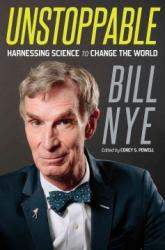
I grew up on Bill Nye’s science show on PBS. I appreciated his
straightforward approach to teaching science to children that was both
informative and humorous. Possibly in part due to this, I now find myself
with a Master’s degree in Mechanical Engineering and employed in a very
technical field. I also find myself writing books which are surreptitiously
educational, hoping that the entertainment value of my writing will subtly
inspire people to learn more about science. Consequently, merely based on the
author of this book, I was interested in reading it, despite the somewhat
vague and ambiguous title.
While there was plenty of very interesting material presented in this book,
much of it I had already known about by keeping up with the technological
advances of the world today, I felt like its order was a little off. Right
from the get-go, Nye hammers home that global climate change is a problem.
The entire rest of the book then explores technologies and developments that
could potentially solve, or at least abet the rapid rate of change leading to
our soon-to-be unsustainable world. As a result, there’s a bit of fear
introduced from the beginning that is tugged on throughout. I would have
flipped these topics around and shown all the neat scientific breakthroughs
(or near breakthroughs) we have in our current world, then use the knowledge
of these advancements to address the climate change issue. In this way, I
think the tone would be more inspiring and lead more people to pursue the
solutions instead of being alarmist and driving people to act out of fear
instead of out of the hope of what our future could be if we act now.
Nye’s trademark humor is sprinkled throughout his writing, which made
reading this book enjoyable. Furthermore, since he takes a very personal
approach with his examples and stories (I love his “love/hate”
relationship with Ed Begley Jr.), many of his opinions leak through. Many
times throughout the book, these opinions came off to me as a bit
off-putting, especially if the person reading this book happens to be of an
opinion differing from Nye’s. As such, there was a bit of “preaching to
the choir” that might not be helpful when trying to change the minds of
those who don’t share the same opinions. Still, his attempts at re-framing
the problem of global climate change and adjusting how we think about it were
quite admirable and I think everyone should give his ideas a chance.
A tale of both imminent danger and inspiration, I give Unstoppable 3.5 stars
out of 5.
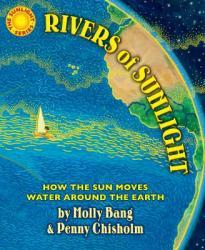
"I am your sun. My energy warms your days. I light up your world." So begins a lovely book about how the entire Earth's water system works. The illustrations are the sort you can sink into and perseverate over. This book is so beautiful, in fact, that you will absorb the complexity of our Earth's hydrology without even realizing it. Check out Rivers of Sunlight and pour yourself into knowledge and beauty.
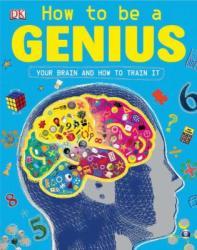
This incredible book tells you all about how your brain works, how you survive, and how you are the person that you are. Through very accessible graphics and clear descriptions, you learn so much! There are cool games, quizzes, puzzles, brain teasers, and more! Then put what you learn into practice to become a genius! Recommended for ages 10 and up.
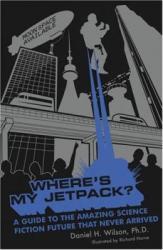
Some of the best science fiction ever written was strangely prescient with its predictions on how the world would advance, technologically. One of the best examples of this was Jules Verne in his story From the Earth to the Moon. Not only did he figure out what it would take to get away from Earth’s gravity, he predicted that the launch site would be in Florida. Ever since then, we have looked to the authors of science fiction to tell us what could be possible in the future of tomorrow.
Unfortunately, some of these predictions weren’t quite realistic. While jetpacks and moon colonies sound cool in the pages of a fictional book, they just aren’t practical in reality. Still, our childlike wonder and innovation tried its best to create what the science fiction authors of yore dreamt up. In Where’s My Jetpack?, Daniel H. Wilson does his best to explain where all these fantastical inventions and concepts are in their process toward being fully realized. But don’t worry about this being a stuffy tome full of complicated science. Wilson does a good job infusing humor with his research, which helps to show how ridiculous some of these ideas really are.
My one challenge with this book came with the fact that it was published back in 2007. It’s been 10 years since this book came out and now much of its research is either naively optimistic or didn’t pan out. What’s perhaps even more exciting is being aware of the technological developments that have made some of the impossibilities mentioned in this book at least somewhat plausible. Consequently, it’s best to read this book as a snapshot in the technological timeline that is our current reality.
A humorous look at the amazing technological developments inspired by sci-fi, I give Where’s My Jetpack? 4.0 stars out of 5.
For more reviews of books and movies like this, please visit www.benjamin-m-weilert.com
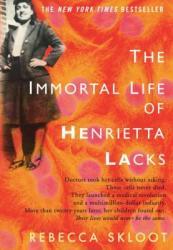
This book tells three intertwining stories and spans decades, centering on an immortal line of human cells, taken from an African American woman named Henrietta Lacks in the 1950’s. She was afflicted with an aggressive form of cervical cancer, and through deception, gave her consent for the doctor to take cell samples. Her cell sample was coded as HeLa, and her real identity was not known. This event starts a fascinating, disturbing tale of medical ethics gone awry, capitalism in medicine, investigative journalism, and the contrasting lives of Lacks descendants.
The discovery of Henrietta’s immortal cancer cells, laid the foundation for most of the scientific discoveries we have made, and created a multi-billion dollar industry where her cells were sold all over the world as an infinite supply of scientific testing material. At the same time companies and hospitals were selling the HeLa cells, the Lacks family were living in extreme poverty, with no medical care. Author Rebecca Skloot bounces back and forth between Henrietta’s final days, and the present day, as she attempts to gain the trust of the Lacks family, discover who HeLa was, and how medical ethics were not always a reality. For a non-fiction book about cellular biology, it is a riveting detective story that also exposes medicines sordid past, and makes the reader question whether advancement of medicine is worth it at any cost.


